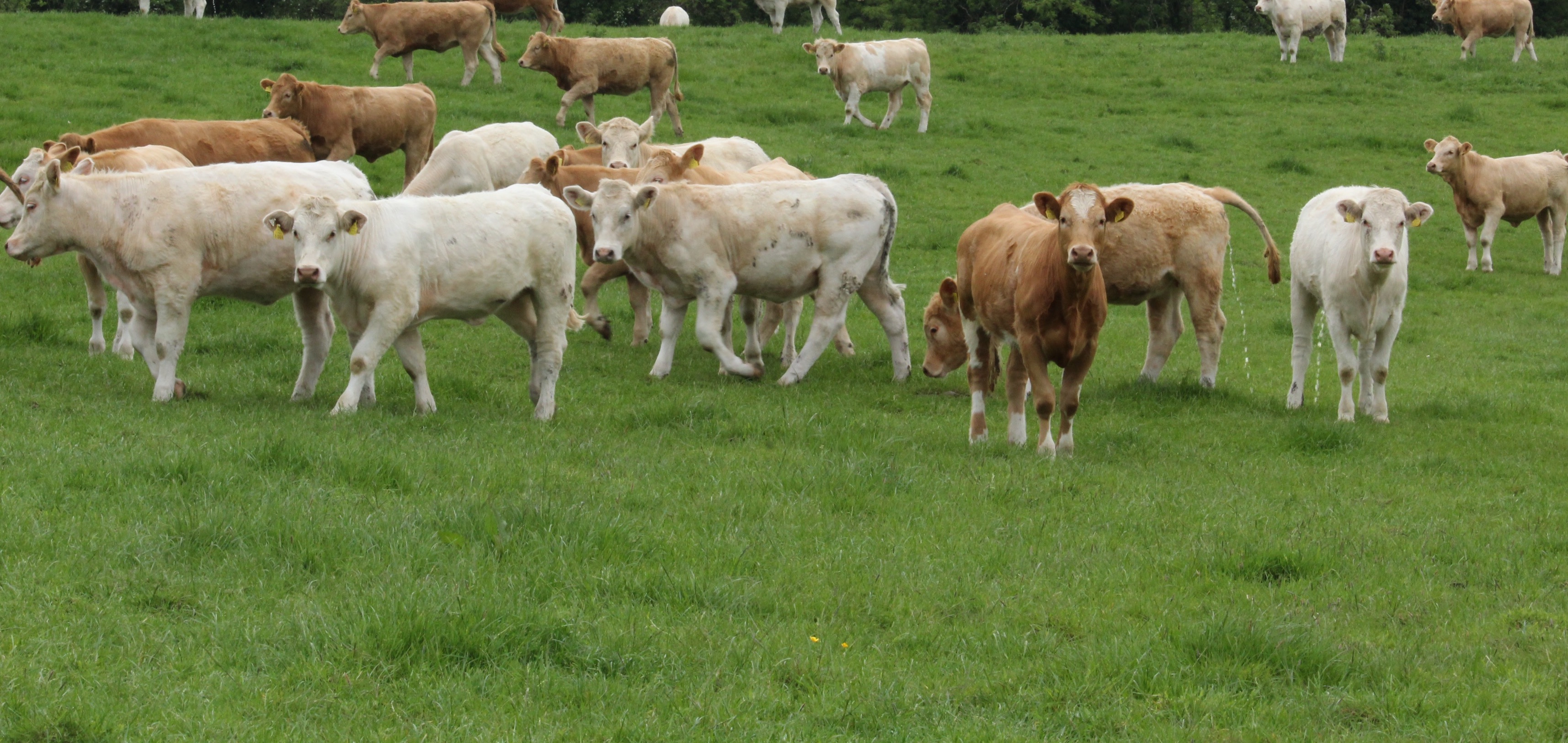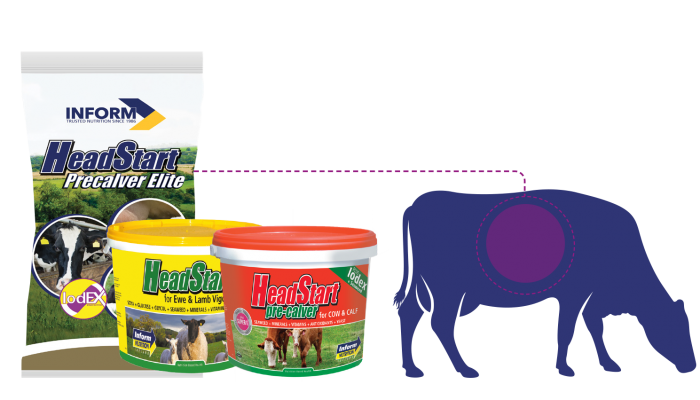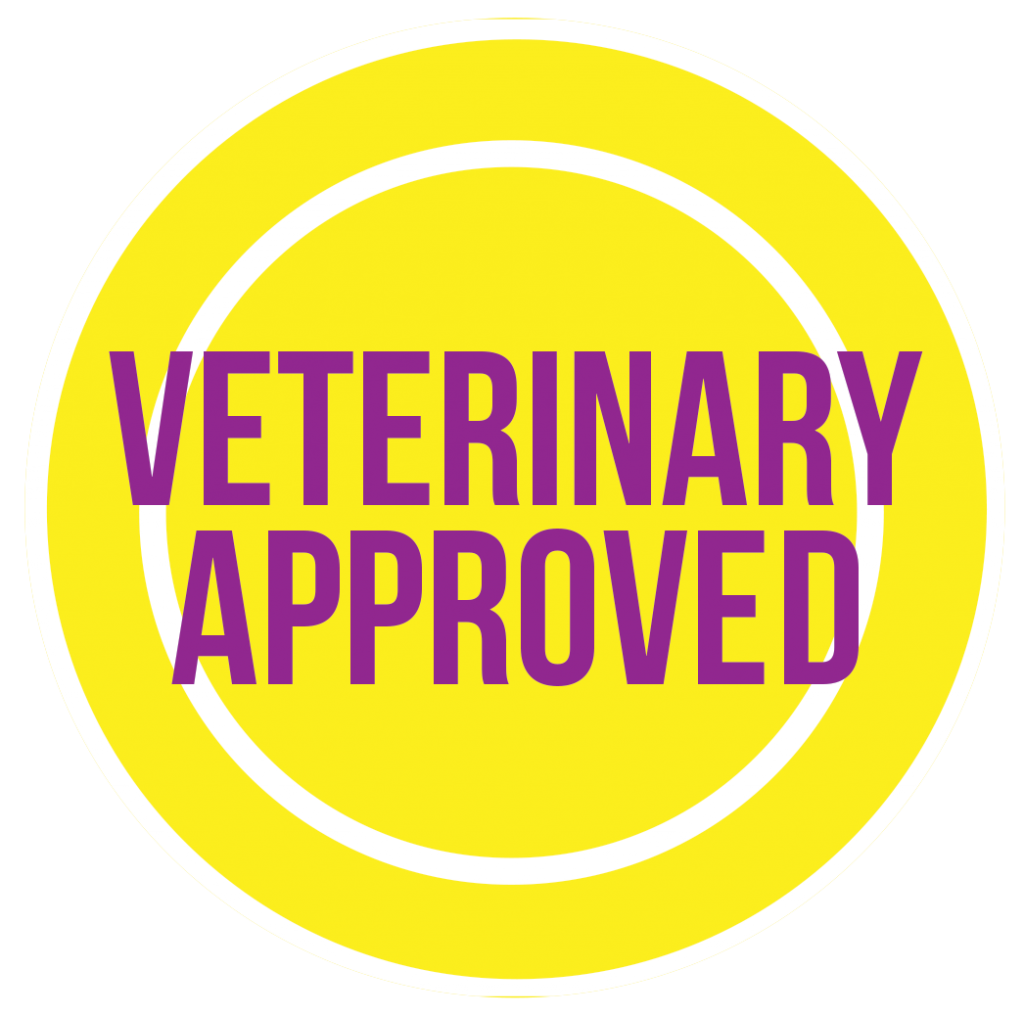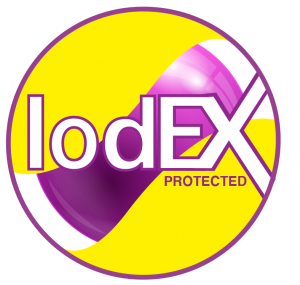
Faced with on-going iodine problems on farms, increasing legislation and consumer requirements regarding iodine levels in feed, Inform Nutrition Ireland have carried out extensive research and have developed a unique, bioavailable and multi-stage system of protecting iodine called IodEX.
Role of Iodine Iodine is an essential trace element for animals and is vital for growth, development, feotal developement & reproduction. Iodine is found throughout the animal body in all tissues and in all body fluids.
The main role of iodine is as a component of the thyroid hormones which regulate basic body metabolism, including the absorption of dietary nutrients and the maintenance of body temperature. Ruminants also require iodine as an essential trace element for the microbes found in the rumen.
Iodine is required for milk production and is vitally important to support the growth & development of embryos. In pregnant animals, iodine passes freely across the placenta (the organ in the womb that nourishes the embryo) and accumulates in the blood & tissues of the growing foetus.
Iodine Deficiency
Most Iodine deficiencies we see are simple i.e. low intakes of iodine from forage. A significant percentage of Irish farms grow grass and silage which are low in iodine. Without continuous daily supplementation these animals will not have adequate iodine in their diet.
Induced deficiencies can occur when there are anti-nutritive factors in the feed. Goitrogens, factors in lush grass and high dietary calcium are examples. Goitrogenic feeds include brassicas – rape, kale, swedes and turnips.
A further difficulty with iodine is that it is described as a ‘medium’ store element. Animals can only store iodine for a short period of time. This is why even following months of supplementation with iodine indoors, un-supplemented dairy cows at grass in the spring (ie. cows receiving no meals or minerals), may have low iodine status entering the breeding season.
Over the past years there has been a significant reduction in iodine levels in dairy feeds to get milk powders compliant with consumer requirements for manufacture of infant formula. There are feeding situations where dairy cows are getting low levels of iodine – example where low levels of concentrate are fed.
Bioavailability of Iodine
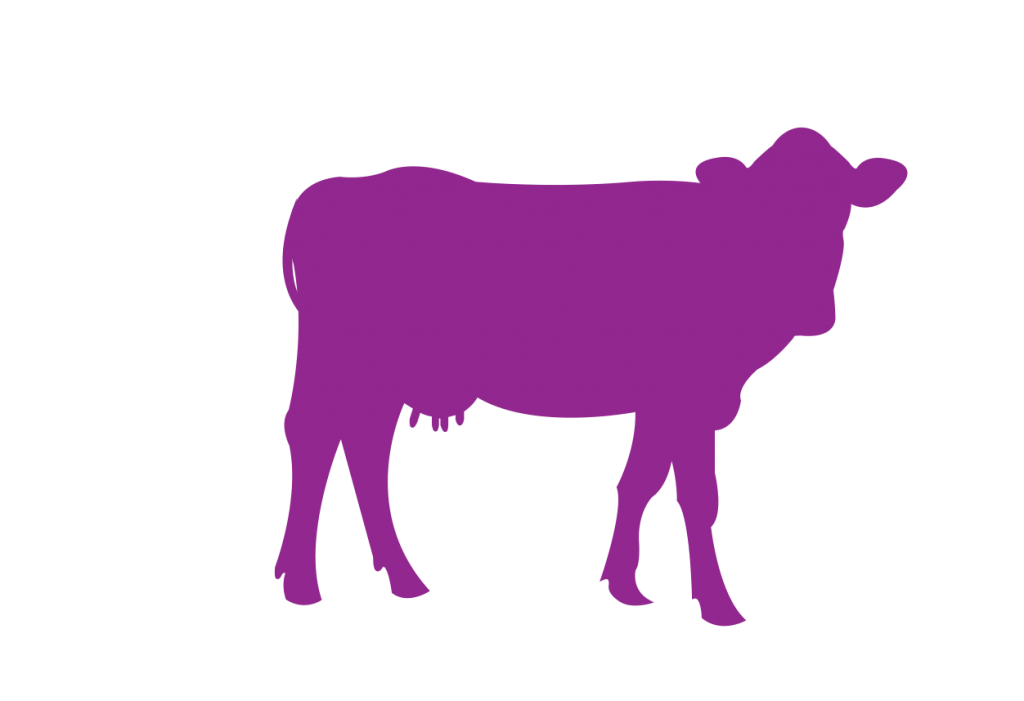
Iodine is not physically a very stable element and up to 50% of feed iodine may sublime (goes from a solid to gas without passing through a liquid phase). Only iodine that is kept dry and cool and properly ‘protected’ when in contact with other minerals, will remain both physically & nutritionally available to the animal. Problems can also occur when Iodine is mixed in TMR or minerals spread on silage.
IODEX provides protected iodine in 3 distinct forms for high absorption and bioavailability:
1)As a protected source to combat feed interactions, but still be available in the rumen, where 60% of iodine absorption occurs
2)As a protected form to bypass the rumen to be released later in the digestive tract
3)As a quickly available soluble source.
